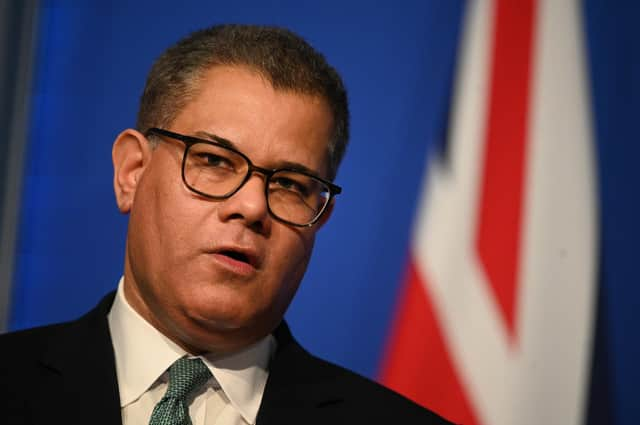Readers' letters: Legacy of COP26 needs monitoring


He was talking about the late change to the agreement where a pledge to accelerate the 'phase out' of coal was changed to 'phase down', meaning countries that burn coal could now take time to effect changes.
Once again the power of 197 countries, each with a veto to scupper any agreement, has watered down the message that COP26 is sending to the world. This veto ruling has to change.
Advertisement
Hide AdAdvertisement
Hide AdCoal is described as the 'world's strongest driver of climate change' but it is not - lignite spews out four times as much noxious gas per ton as coal, but the world only burns 800m tons of lignite so it does not even get on the agenda.
If we stopped mining lignite tomorrow we could reduce climate change gasses by 2.6billion tons of coal equivalent each year.
The money that many countries are demanding as reparation for the Co2 produced by the richest countries is a good idea, but the money has to be policed to ensure it is spent to alleviate the effects of climate change and not ending up in personal bank accounts.
The quickest way to get cash into a Swiss bank is to sent it to a country with only one political party.
James Macintyre, Linlithgow.
Money ill-spent
Advertisement
Hide AdAdvertisement
Hide AdThe spin doctors say a new global deal has been achieved at COP26 in Glasgow. The truth is coal will only be "phased down" not "phased out".
However, Nicola Sturgeon managed to grab the headlines and squander another £12 million of taxpayers' money on top of the £24 million already squandered on developing nations.
The UK's share of the $100 billion a year promised to developing nations includes Scotland but Ms Sturgeon has to grandstand and add £36 million.
Meanwhile, in Scotland deprived areas, the NHS, local authorities and those in fuel poverty suffer.
Clark Cross, Linlithgow.
Austerity looms
Advertisement
Hide AdAdvertisement
Hide AdPlans to accelerate the transition to public transport will involve building housing developments and business parks with little or no car parking space.
The ’20-minute neighbourhood’ will mean facilities will be available in a small surrounding area requiring little or no transport. The circular economy will mean recycling, reusing, making do and mending.
After the war younger siblings wore hand-me-down clothes that their elders had grown out of. Shopping was done on foot on a daily basis at a range of small outlets in one’s own district.
Girls were to taught to darn socks and to patch and mend. We knitted to acquire otherwise expensive pullovers, and made rugs from kits at home. At least we had a coal fire to keep us warm, even if intermittent power cuts sometimes kept us in the dark.
Advertisement
Hide AdAdvertisement
Hide AdThis is what reducing demand on resources means: going without, making do and mending.
Reduced to our 20-minute neighbourhoods, our horizons will shrink, cultural life will stagnate, choices will be circumscribed. This is what austerity is. This is very much the Greens’ prospectus, and it appears to be embraced also by the SNP.
What the young will make of it remains to be seen. But I suspect that, after demonstrating in favour of climate change measures, when faced with austerity in reality, a number will say, in shocked tones, ‘But we didn’t mean it to be like this’.
Jill Stephenson, Edinburgh.
Comment Guidelines
National World encourages reader discussion on our stories. User feedback, insights and back-and-forth exchanges add a rich layer of context to reporting. Please review our Community Guidelines before commenting.